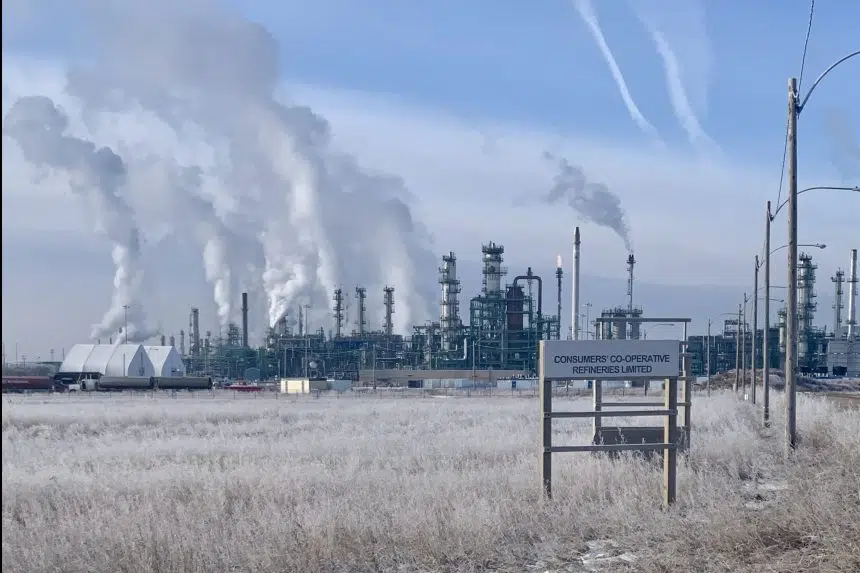Gas pumps are running dry at numerous Co-op locations across Western Canada and the company’s chief executive officer says Unifor’s blockade of key facilities are to blame for constricting its ability to distribute fuel.
Fuel shortages have been reported in several locations in Saskatchewan, including Saskatoon, Weyburn, Estevan and Swift Current.
On Friday, Federated Co-operatives Limited CEO Scott Banda told Gormley the situation is especially problematic in the Winnipeg area, where 22 of 35 gas stations under Red River Co-op are empty.
“(If) you take a quarter of the fuel that’s produced in Western Canada out of the pipeline if you will … (and) that creates a problem,” Banda said. “That’s where we’ve been sitting for the last number of weeks as this has escalated and escalated, to the point where the whole entire system is drained down. As a result, we’re going to see outages.”
Rationing is already taking place at Co-op cardlocks across Western Canada. Banda said emergency vehicles are getting first priority when filling up.
The Co-op refinery in Regina relies on three methods to get its product out: Truck, rail and pipeline.
Banda said trucking hasn’t been possible since Jan. 20, when Unifor erected a barricade around the complex.
Trains take Co-op fuel to the company’s distribution terminal in Carseland, Alta, which can store up to 150 million litres of fuel. However, that location has been blockaded by Unifor as well.
On Thursday, a court issued an injunction that ordered the union to stop impeding traffic in and out of the Carseland facility. However, it’s not clear how it has been enforced.
Fuel is also sent by pipeline to Shell and Imperial Oil terminals in Winnipeg and then distributed from there. Picketing has occurred in the Manitoba capital as well.
“Others have been picking that fuel at this point, but it’s starting to choke. We’re OK for a bit yet but that can’t go on forever,” Banda said.
Unifor has pitched an offer to end the labour dispute and return to work by Monday. The union is asking the province to appoint a mediator who will have power to impose a binding settlement. The union is also asking the company send its replacement workers home.
Banda did not think much of the plan, calling it unrealistic given the nature of the business.
“This isn’t an auto plant or an institution. This is a refinery — a refinery with hundreds of millions of litres of product, fossil fuels, oil, gas, diesels under high pressure and heat,” he said. “We can’t just say, ‘Let’s just leave this thing idle and do a switch out here.’
“They know that. This is part of the theatrics and the rhetoric around their position.”
All of this stems from a bitter and lengthy labour dispute between the union and company, with the main point of contention being changes to current defined-benefit pension plans.
Since workers spent their first day off the job on Dec. 5, the sides have bargained for all of 13 hours in January, failing to reach a deal.
Both sides have maintained they want to return to talks but Banda said it’s Unifor’s actions that are getting in the way.
“Any business in this province, in this country, should be very concerned about the potential dangerous precedent being set here, that when a group doesn’t like you, doesn’t want to agree with you, they simply barricade you in and hold you hostage until they get what they want,” he said. “That’s what’s at stake here for other businesses.
“We owe it to all of our other business partners, to everyone, to stand up against this kind of illegal tactic and not condone it in any other way.”







